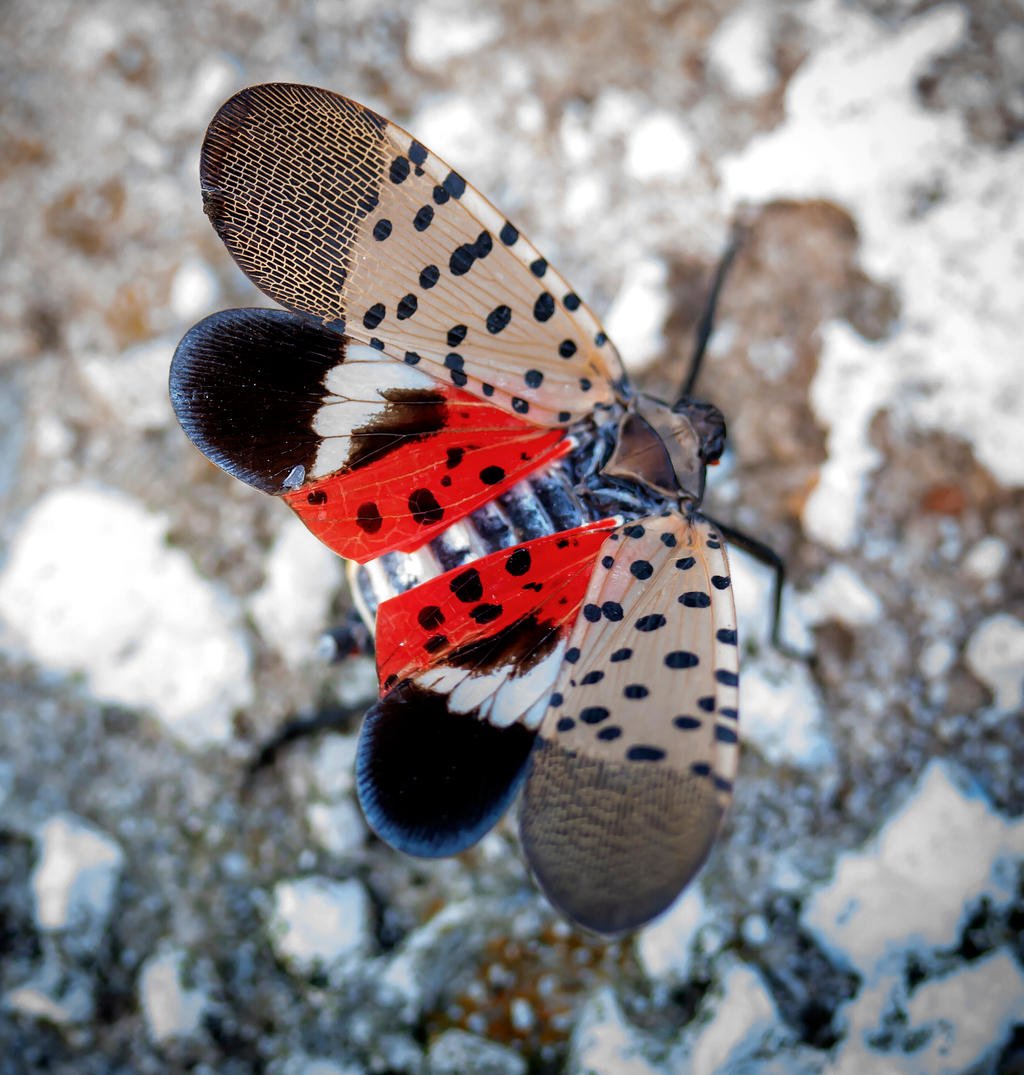A plague upon the garden
A plague upon the garden
Pretty and pretty deadly: The spotted lanternfly is a seductive plague on plants like grapevines and the U.S. agricultural economy. Photograph by Wandering Mogwai.
The smoke from the Canadian wildfires that recently drifted to our area may have you asking, What’s next, locusts?
Funny you should ask. The spotted lanternfly has made a return to the metro area, bringing with it a threat to the nation’s agricultural economy.
An Asian native, the insect made its American debut about 10 years ago when, according to a June 18 article in The New York Times, it appeared at a Pennsylvania company that important stone. It wasn’t long before the spotted lanternfly made its move to New York, in 2020.
At the moment, the insects have hatched and are in their white-spotted black nymph phase. In July, however, they will be black-spotted red, black and gray adults as seen in promotional postcards being sent out by landscaping companies. If it seems as if these are like wanted posters, it’s no joke: The Department of Agriculture advocates squashing and swatting the invasive species as it poses a threat to American botanicals, particularly grapevines. Indeed, the government has been recruiting East Coast residents to try to contain the spotted lanternfly population.
How do you do that? You can vacuum and trap the critters; use the Scandinavian plant oil-based spray Grunnsape; or get rid of those plants, like the Chinese tree of heaven, that are catnip to the spotted lanternfly.
Containment is apparently the best we can do, in part because the attractive creatures have already found a way into the hearts of some, like Penn State evolutionary biologist Julie Urban, who told The Times that American fruit, timber and ornamental trees have fared better against the insects than their South Korean counterparts have.
She doesn’t like killing these “little freaks-show jewels of science,” adding, however, that stomping them is kinder than using insecticides.
For others, it will come down to a question of the insect or the economy.
If you spot the spotted lanternfly and need help, contact us at the Morano Group.

